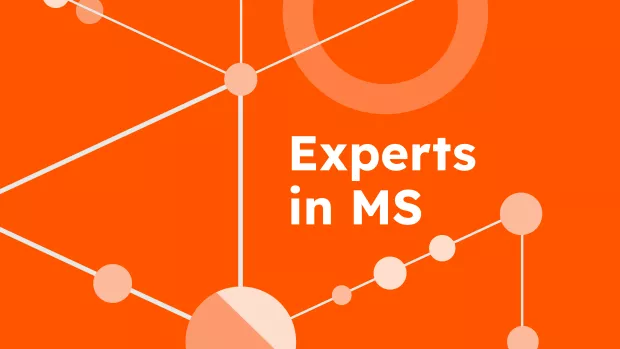
New and innovative practice
Find out about outstanding and innovative services for people with MS.
Delivering cognitive screening and rehabilitation within MS Pathways
Approximately 40 to 60% of people with MS have cognitive difficulties which can have a negative impact on their personal, professional and social lives. Despite the prevalence of cognitive problems, we know that MS clinics do not routinely screen for these. And where such problems are identified, cognitive rehabilitation is not systemically offered to all those who are likely to benefit from such interventions.
We recently delivered a webinar focused on the application of psychological and neuropsychological science to better understand and treat psychological issues related to neurological conditions. It provides an overview of:
- what kind of cognitive screening can be done within your clinic
- the evidence of the effectiveness of cognitive rehabilitation
- how you and your team can offer some support towards cognitive rehabilitation.
It also explored how cognitive screening and rehabilitation can be delivered remotely by mobile phones or online platforms (such as Microsoft Teams).
We are grateful to Professor Roshan das Nair of University of Nottingham (UK) and SINTEF (Norway), and Lauren Taylor, PhD Student Clinical Psychology for leading the webinar and sharing their research findings.
New Pathway to support MS patients on General Wards
We know that people with progressive MS are more likely to experience unplanned hospital admission and longer hospital stays. And risk deteriorating significantly during these stays. Caring for the person with progressive MS in hospital can be challenging due to the complex physical and sometimes cognitive disabilities they may present with.
Two experienced clinical nurse specialists in MS, Emma Matthews and Miranda Olding, have developed a pathway that prompts staff on general wards in the best care, using simple, achievable actions. To help prevent deterioration, reduce length of stay and promote speedier and safer discharge home.
Emma and Miranda shared their work on the pathway in an Experts in MS webinar. They also answered a number of questions from the professionals in attendance. You can watch the webinar and find out more by clicking the link below.
The pathway will now be piloted across two NHS Hospital Trusts. A more comprehensive implementation package, designed to support Health Care Professionals in introducing the Pathway, will be produced following the pilot in 2024. You can view and download the care pathway by clicking the link below.
Watch the webinar on YouTubeView and download the Pathway document
Co-designing NeuroResponse – digital, speedy UTI assessment and treatment at your fingertips
NeuroResponse is a service that allows people with MS in North and Central London to get quick and easy 24/7 access to clinicians at NHS 111 to aid early detection of urinary tract infections. This helps reduce the need for GP appointments and unnecessary hospital attendances.
Many people living with MS experience urinary tract infections, but getting appropriate advice and treatment can be a challenge. In this webinar we share how an MS community came together to co-design NeuroResponse, which provides timely assessment and treatment.
We discuss the principles of co-design, the barriers and enablers of innovation in the NHS, and explore experiences to see how 'people power' can transform care delivery. And you’ll find out how to access this innovative service.
Models of care evaluations
Our models of care evaluations explore the impact each model of care has on people’s health and wellbeing and the quality of the care they receive. They also look at how well the models might work if applied to other areas.


